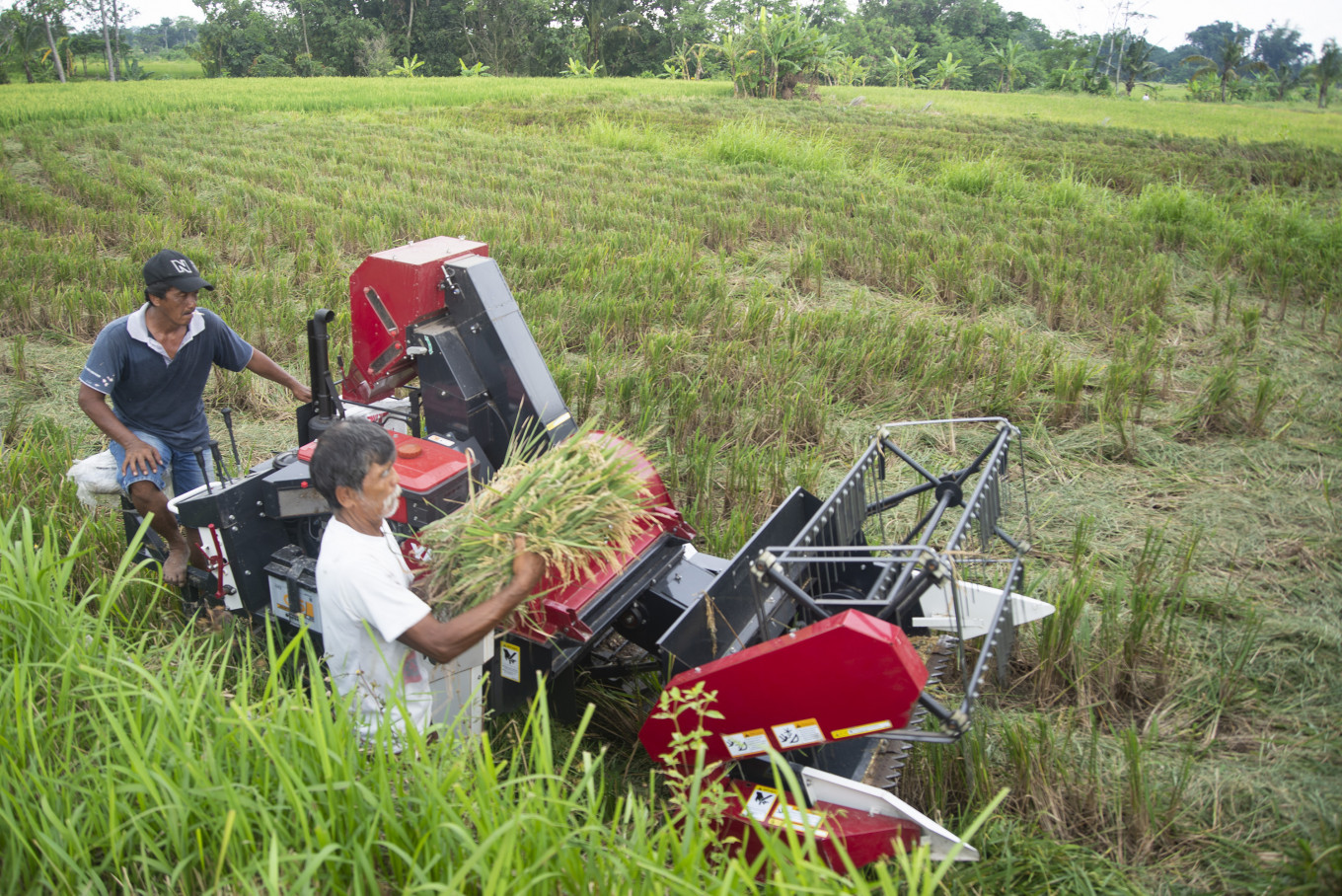Popular Reads
Top Results
Can't find what you're looking for?
View all search resultsPopular Reads
Top Results
Can't find what you're looking for?
View all search resultsIndonesian farmers suffer pandemic-related losses in May
The Farmers Exchange Value (NTP), the ratio of farmers’ incomes to their household expenses, fell by 0.85 percent to 99.47 in May from a month earlier. A value below 100 indicates that farmers’ expenses are higher than their incomes.
Change text size
Gift Premium Articles
to Anyone
I
ndonesian farmers suffered losses in May as low prices and supply chain disruptions hit the sector as a result of the COVID-19 pandemic.
The Farmers Exchange Value (NTP), the ratio of farmers’ incomes to their household expenses, fell by 0.85 percent to 99.47 in May from a month earlier. A value below 100 indicates that farmers’ expenses are higher than their incomes.
The exchange value for smallholder plantation farmers recorded the sharpest decline – 2.30 percent – followed by horticultural and crop farmers, with 0.58 percent and 0.54 percent declines respectively.
“Smallholder plantations obviously took a hit because accessibility to other countries became tighter,” Indonesian Farmers Union chairman Henry Saragih said in a statement on Wednesday.
The agricultural sector, which employs more than a quarter of the national workforce, has been affected by COVID-19 restrictions in many countries. The World Trade Organization predicts that global trade will decline by up to 32 percent this year.
Consequently, the union noted that the price of products that relied heavily on exports, such as palm oil, had been affected. The price of unprocessed palm oil fruit bunches stood at Rp 1,170 (83 US cents) per kilogram in Riau, the largest palm oil-producing province. The union considers this price “too risky” for the farmers.
The government has earmarked Rp 34 trillion for loan interest subsidies and loan repayment relaxations for farmers and fishermen through the microcredit program (KUR) and the government’s UMi and Mekaar programs, among others.
However, not all farmers have the collateral to qualify for these programs.
“The government recently relaxed its microcredit program [KUR] requirements. This is necessary, but it does not solve the problems farmers are facing, such as difficult distribution, marketing their products and the falling price of some crops,” said Henry.
Galuh Octania, a researcher at Center for Indonesian Policy Studies (CIPS), said on Thursday that the pandemic had aggravated farmers’ losses because the yield from the current harvest season could exceed the demand as people spent less.
The unusually low inflation rate of 2.19 percent year-on-year in May signaled weak spending amid the festive month of Ramadan, when private consumption usually peaks.
Most farmers’ spending also took a hit since about two thirds of Indonesian farmers are net consumers, according to Galuh.
The Jokowi administration has committed to providing Rp 300,000 in cash assistance for three months to 2.7 million poor farmers to help with their expenses. It also plans to offer support in the form of fertilizer and seeds, among other things, valued at Rp 300,000.
“To support farmers, the most important thing is the social safety net to help them continue producing food,” Galuh said on Thursday. “In addition, the State Logistics Agency [Bulog] should keep procuring staple products at a satisfying price for farmers.”
On the other hand, TaniHub Group, which sells agricultural products online, reported that the logistical disruption might actually cause farmers to raise prices to offset risk.
As a result, the prices of certain products might be higher when they arrive in Jakarta from producing provinces despite it being the harvest season.
Although the government has exempted food logistics from coronavirus restrictions, which are gradually being phased out in some places, many of the firm’s truck drivers had to quarantine themselves for 14 days while picking up supplies in virus-hit regions. This increased operational costs.
“At the same time, our warehouses, especially the one in Bogor that serves our consumers in Greater Jakarta, saw quite high demand since the number of consumers buying through TaniHub significantly increased,” Abednego Gunawan, head of trade procurement at TaniSupply, a subsidiary of TaniHub, told The Jakarta Post on Thursday.
“This made declining prices matter less,” said Abednego.










